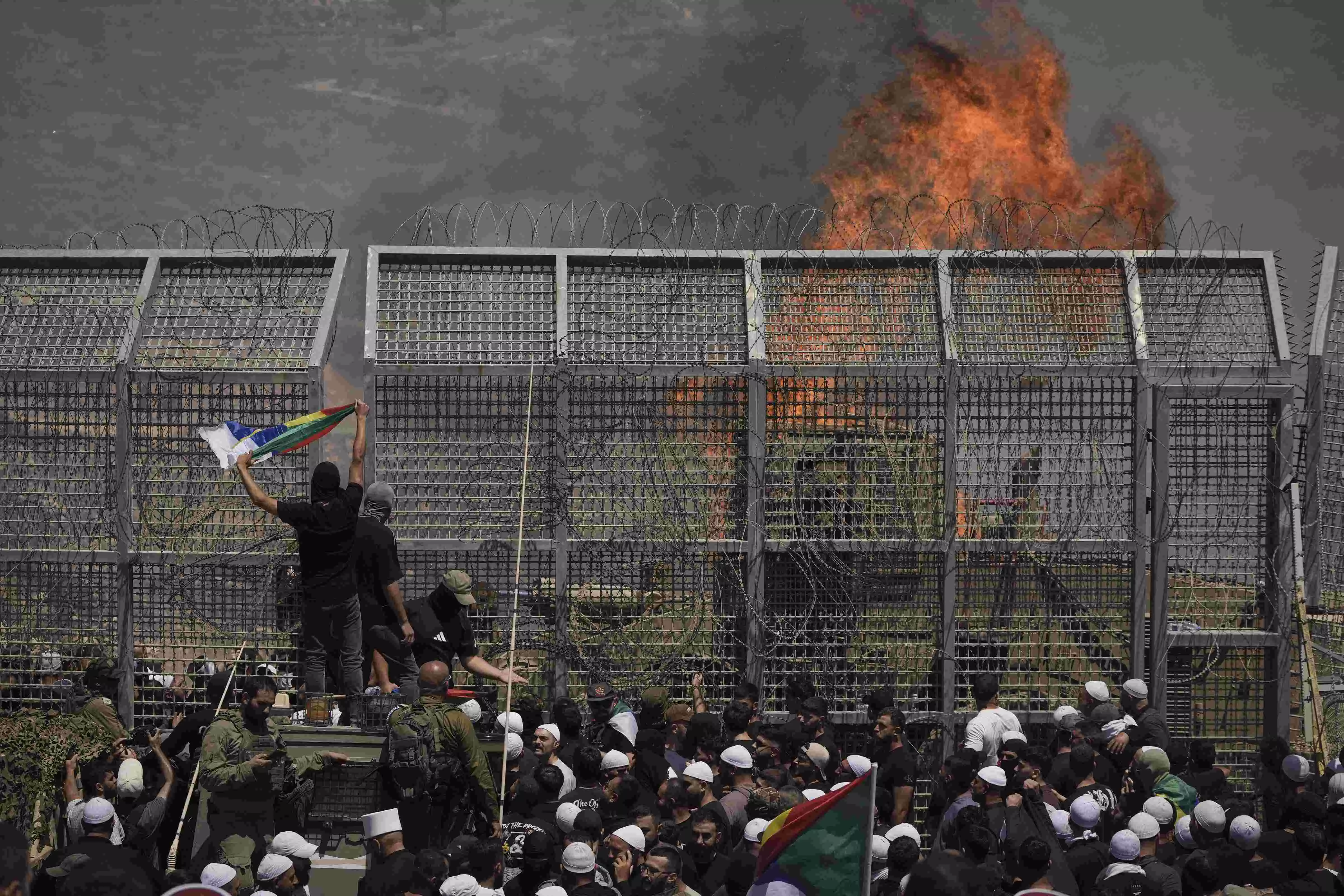Faultlines of Fragility

Seven months after Bashar al-Assad’s ouster marked the end of Syria’s brutal 14-year civil war, the country finds itself entangled in fresh violence and diplomatic uncertainty. The latest eruption in the southern province of Sweida, involving Druze militias, Sunni Bedouin tribes, government forces, and Israeli airstrikes, underscores the volatility of Syria’s fragile transition. Instead of heralding a new era of stability and inclusion, the postwar political order appears to be replicating the coercive impulses of the past. With sectarian fault lines widening and regional powers recalibrating their influence, Syria’s new leadership faces its gravest test yet. The violence that erupted was sparked by clashes between Druze militias and local Sunni Bedouins. What began as a localised dispute soon spiralled when government forces intervened, ostensibly to restore order, but instead launched an aggressive operation to seize control of Sweida. This miscalculation not only provoked a fierce response from Druze fighters but also drew in Israel, which regards the Druze as a vital minority both within and outside its borders. Israeli airstrikes on Damascus and Sweida sent a clear warning to Syria’s interim president, Ahmad al-Sharaa—a former Islamist rebel now advocating coexistence—that military overreach against minorities would not go unanswered. The scale of the violence, which left hundreds dead and saw reports of civilian executions and looting, exposed the thin veneer of unity in post-Assad Syria. This is not an isolated incident. In the months following Assad’s exit, other minority communities—particularly Alawites and Kurds—have experienced marginalisation and violence. The Alawite massacre on the coast, which occurred shortly after the regime change, sent a chilling message about the interim government’s ability—or willingness—to protect vulnerable groups. While the government claims to champion a new, inclusive Syria, its actions in Sweida have undercut its credibility. As civil society voices have noted, minority representation in the interim setup is tokenistic at best. The use of military force against the Druze, a group that had largely remained neutral during the civil war, signals a troubling return to centralised coercion over negotiated federalism.
The interim government now finds itself in a bind. Its decision to withdraw from Sweida under a mediated truce may appear conciliatory, but it also risks emboldening other minorities to demand similar autonomy. This fear is not unfounded. Already, the Kurdish-led Syrian Democratic Forces (SDF) have stalled on fully integrating into the national army, citing concerns over institutional dominance and broken promises. The SDF, long backed by the United States, had agreed in principle to merge with the new Syrian army. But the Sweida episode will only deepen their mistrust. As they watch the government retreat under pressure, Kurdish leaders may consider asserting their own semiautonomous control—or worse, seeking new patrons. Israel’s intervention complicates the picture further. The Trump administration had quietly backed a track of Syria-Israel rapprochement since Assad’s fall, hoping to secure a long-term strategic realignment. Those prospects now lie in tatters. Airstrikes on central Damascus and targets near the presidential palace, even if intended as symbolic warnings, have shredded diplomatic goodwill. As regional analysts point out, it is diplomatically untenable to pursue normalisation with a country you are actively bombing. President al-Sharaa, much like his Israeli counterpart Benjamin Netanyahu, faces domestic constituencies unwilling to overlook national humiliation. The strikes may have protected Druze civilians in the short term, but they have likely torpedoed months of careful backchannel diplomacy. Amid this fragmentation, Turkey emerges as a potential beneficiary. Historically opposed to Kurdish autonomy and wary of instability along its borders, Ankara has long expressed interest in shaping Syria’s postwar order. The current leadership vacuum, coupled with Israel’s perceived aggression, may push Damascus toward closer cooperation with Turkey. Defence ministry officials in Ankara have already signalled readiness to support Syria’s security apparatus, possibly reviving discussions of a long-stalled defence pact. While such a move would be geopolitically consequential, it would also come at the cost of Kurdish aspirations and further alienate U.S. influence in the region.
For India, and indeed the broader international community, the developments in Syria offer sobering lessons. First, the end of an autocratic regime does not guarantee a democratic peace. In Syria’s case, the power vacuum has been filled not by inclusive governance, but by fragmented authority, mutual distrust, and opportunistic alliances. Second, external interventions—even when motivated by humanitarian concern—can derail fragile peace processes if not paired with sustained diplomacy. And third, minority rights must be foundational to any political transition, not an afterthought to be negotiated under fire. As Syria teeters between federalism and fragmentation, its people once again bear the cost of geopolitical ambition and internal power struggles. The hope of a pluralistic and peaceful Syria—one that rose briefly after Assad’s fall—now seems increasingly distant. Unless the interim government makes a genuine, sustained effort to engage its minorities as equal stakeholders, the country risks slipping into a new cycle of conflict. The war may be over, but Syria’s future remains very much in flux.



